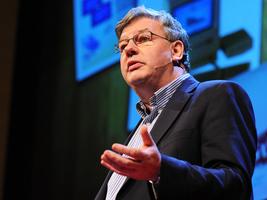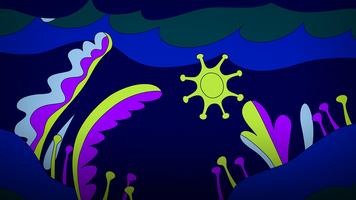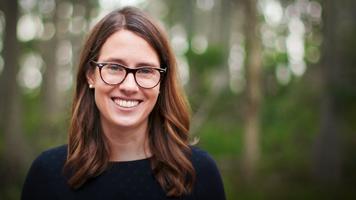Kay M. Tye: What investigating neural pathways can reveal about mental health
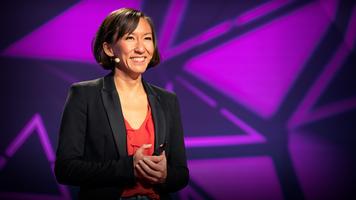
Neuroscientist Kay M. Tye investigates how your brain gives rise to complex emotional states like depression, anxiety or loneliness. From the cutting edge of science, she shares her latest findings -- including the development of a tool that uses light to activate specific neurons and create dramatic behavioral changes in mice. Learn how these d...
Constantine N. Vaporis: A day in the life of a teenage samurai
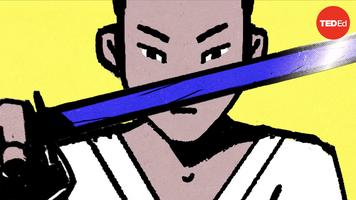
The year is 1800 in the castle town of Kôchi, Japan. It's just after sunrise, and 16-year-old Mori Banshirô is already hard at work practicing drills with his long sword. He is an ambitious samurai in training, and today he must impress his teachers more than ever so he can travel to the capital city for martial and scholarly studies. Constantin...
Mark Robinson: A day in the life of an ancient Greek architect
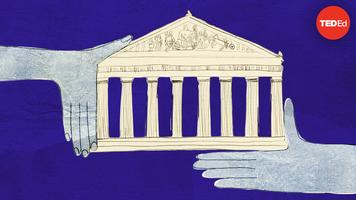
The year is 432 BCE. As dawn breaks over Athens, Pheidias is already late for work. He is the chief builder for the Parthenon — Athens' newest and largest temple— and when he arrives onsite, city officials accuse him of embezzling gold from the temple's sacred central statue. He has until sundown to prove his innocence or face the courts. Mark R...
Birte Kristiansen and Petra Sijpesteijn: A day in the life of a teenager in medieval Baghdad
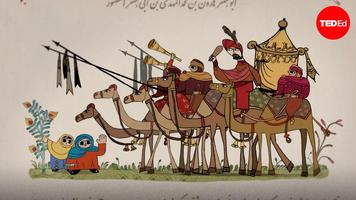
It's 791 CE. As the morning sun shines on the Golden Gate Palace, brother and sister Hisham and Asma prepare for the journey of a lifetime: the hajj, a holy pilgrimage to Mecca. They intend to travel with the big hajj caravan— but a last-minute mishap threatens to undo months of careful planning. Birte Kristiansen and Petra Sijpesteijn detail a ...
Kay Read: A day in the life of an Aztec midwife

The midwife Xoquauhtli has a difficult choice to make. She owes a debt to her patron Teteoinnan, the female warrior goddess at the center of the Aztec seasonal festival, who must be kept happy or she will bring bad luck. Xoquauhtli should participate in the festival today, but one of her patients could go into labor any minute. Kay Read outlines...
Robert Garland: A day in the life of an ancient Athenian
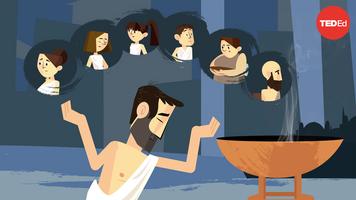
It’s 427 BCE and the worst internal conflict ever to occur in the ancient Greek world is in its fourth year. Athens is facing a big decision: what to do with the people of Mytilene, a city on the island of Lesbos where a revolt against Athenian rule has just been put down. How did these kinds of decisions get made? Robert Garland outlines a day ...
Philip Freeman: A day in the life of a Celtic Druid
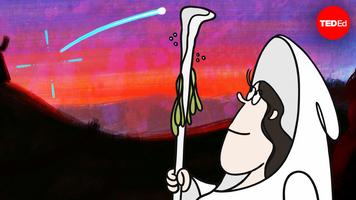
As the sun rises in 55 BCE, Camma lays two pigeons on the altar at the center of her village. She wrings the birds' necks and cuts them open to examine their entrails for divine messages. Camma is a druid. She conducts religious rites, serves as a judge, healer, and scholar, teaches children and mediates conflict between Celtic tribes. Philip Fr...
Mark Robinson: A day in the life of the Oracle of Delphi
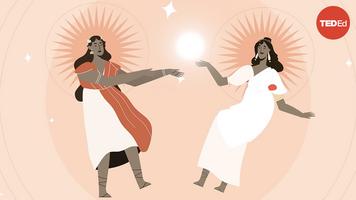
As the sun rises over Delphi in 500 BCE, Aristonike hurries to the temple of Apollo where a single oracle known as the Pythia communicates Apollo's will. Reserved only for women, this is the most important job in the city— and one that Aristonike will soon have to take on if city council officials decide she meets their standards. Mark Robinson ...
TED-Ed: The best way to apologize (according to science)
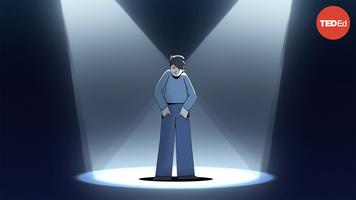
Over the years, people have come up with some truly awful apologies. From classic non-apologies, to evasive excuses, and flimsy corporate promises, it's all too easy to give a bad apology. Good apologies generally share certain elements, and considering these factors can help you make amends in a variety of situations. Explore what to do— and no...
Soraya Field Fiorio: A day in the life of an ancient Babylonian business mogul
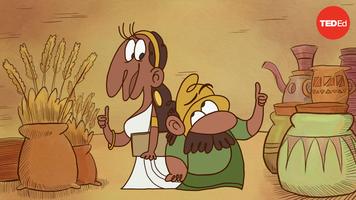
It's 1762 BCE. As dawn breaks in the Babylonian city of Sippar, Beltani— a priestess and businesswoman— receives an urgent visit from her brother. He makes a troubling accusation: her tavern keeper has been undermining the business Beltani relies on in her old age. Now she has just a few short hours to find out the truth. Soraya Field Fiorio det...
Boniface Mwangi: The day I stood up alone
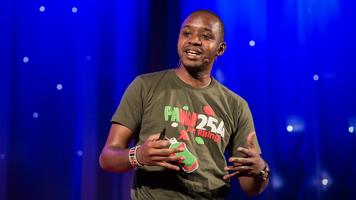
Photographer Boniface Mwangi wanted to protest against corruption in his home country of Kenya. So he made a plan: He and some friends would stand up and heckle during a public mass meeting. But when the moment came ... he stood alone. What happened next, he says, showed him who he truly was. As he says, "There are two most powerful days in your...
Faith Osier: The key to a better malaria vaccine
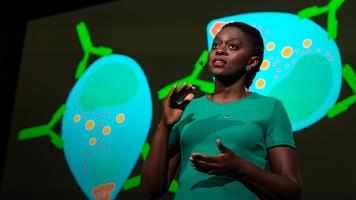
The malaria vaccine was invented more than a century ago -- yet each year, hundreds of thousands of people still die from the disease. How can we improve this vital vaccine? In this informative talk, immunologist and TED Fellow Faith Osier shows how she's combining cutting-edge technology with century-old insights in the hopes of creating a new ...
Ian Ritchie: The day I turned down Tim Berners-Lee
Juliet Schor: The case for a 4-day work week
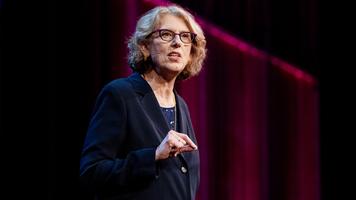
The traditional approach to work needs a redesign, says economist Juliet Schor. She's leading four-day work week trials in countries like the US and Ireland, and the results so far have been overwhelmingly positive: from increased employer and customer satisfaction to revenue growth and lower turnover. Making the case for a four-day, 32-hour wor...
Alex Gendler: A day in the life of a Cossack warrior
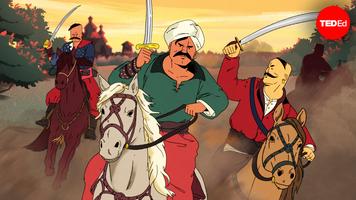
The year is 1676, and a treaty has officially ended hostilities between the Polish-Lithuanian Commonwealth and the Ottoman Empire. Despite a serene sunset on the Dnipro river, the mood is tense for the Zaporozhian Cossacks. Renowned as one of Europe's most formidable military forces, they are in the midst of a power struggle. Alex Gendler outlin...
Christina Greer: Notes of a native son: the world according to James Baldwin
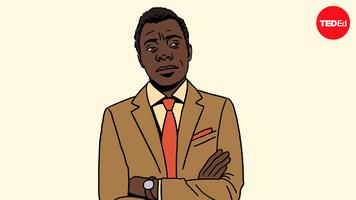
In the 1960s, the FBI amassed almost 2,000 documents in an investigation into one of America's most celebrated minds. The subject of this inquiry was a writer named James Baldwin, one of the best-selling Black authors in the world at the time. What made him loom so large in the imaginations of both the public and the authorities? Christina Gree...
Halla Tómasdóttir and Bryn Freedman: The crisis of leadership -- and a new way forward
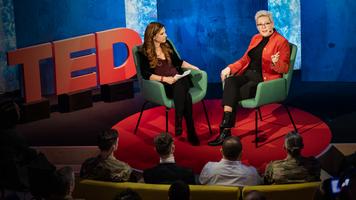
What should modern leadership look like? Entrepreneur and former Icelandic presidential candidate Halla Tómasdóttir thinks global leaders need to change their ways -- or risk becoming irrelevant. In a conversation with curator Bryn Freedman, she shows how anybody can step up and make a difference, even if you don't yet have power. "There's a lea...
Franklin Leonard: How I accidentally changed the way movies get made

How does Hollywood choose what stories get told on-screen? Too often, it's groupthink informed by a narrow set of ideas about what sells at the box office. As a producer, Franklin Leonard saw too many great screenplays never get made because they didn't fit the mold. So he started the Black List, an anonymous email that shared his favorite scree...
Anne F. Broadbridge: A day in the life of a Mongolian queen
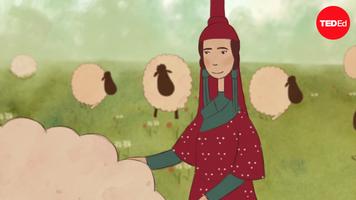
As dawn breaks over a moveable city of ten thousand yurts, Queen Boraqchin readies her kingdom for departure to their summer camping grounds. While her husband, the grandson of Genghis Khan, is out raiding, she juggles the duties of managing flocks, family and a city of thousands. Anne F. Broadbridge outlines a day in the life of a Mongolian que...
Matt Walker: 4 ways the COVID-19 pandemic changed the way we sleep
Ed Boyden: A new way to study the brain's invisible secrets
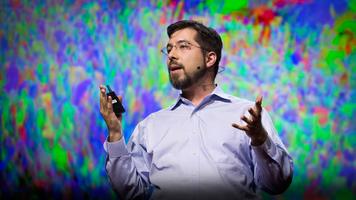
Neuroengineer Ed Boyden wants to know how the tiny biomolecules in our brains generate emotions, thoughts and feelings -- and he wants to find the molecular changes that lead to disorders like epilepsy and Alzheimer's. Rather than magnify these invisible structures with a microscope, he wondered: What if we physically enlarge them and make them ...
Jennifer Wilcox: A new way to remove CO2 from the atmosphere
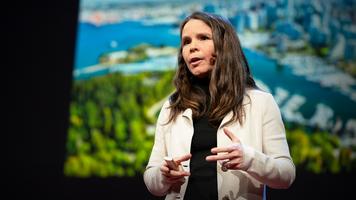
Our planet has a carbon problem -- if we don't start removing carbon dioxide from the atmosphere, we'll grow hotter, faster. Chemical engineer Jennifer Wilcox previews some amazing technology to scrub carbon from the air, using chemical reactions that capture and reuse CO2 in much the same way trees do ... but at a vast scale. This detailed talk...
Gabriel Prieto: A day in the life of a Peruvian shaman
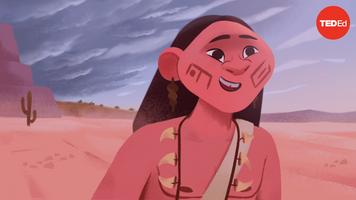
The year is 1400 BCE. At the temple of the fisherman, the morning is unusually still and this is just the latest in a series of troubling signs for Quexo, the village shaman. The villagers live off the sea, but this year the winds have died and the fish have dwindled. He's seen this before— his only hope to fix it is a special ritual. Gabriel Pr...
Alexandra Sacks: A new way to think about the transition to motherhood
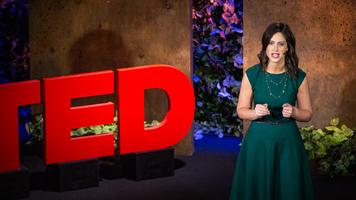
When a baby is born, so is a mother -- but the natural (and sometimes unsteady) process of transition to motherhood is often silenced by shame or misdiagnosed as postpartum depression. In this quick, informative talk, reproductive psychiatrist Alexandra Sacks breaks down the emotional tug-of-war of becoming a new mother -- and shares a term that...
Susan Graham: A new way to restore Earth's biodiversity -- from the air
Michael Metcalfe: A provocative way to finance the fight against climate change
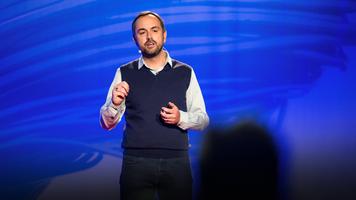
Will we do whatever it takes to fight climate change? Back in 2008, following the global financial crisis, governments across the world adopted a "whatever it takes" commitment to monetary recovery, issuing $250 billion worth of international currency to stem the collapse of the economy. In this delightfully wonky talk, financial expert Michael ...
Elizabeth Cox: A day in the life of an ancient Egyptian doctor
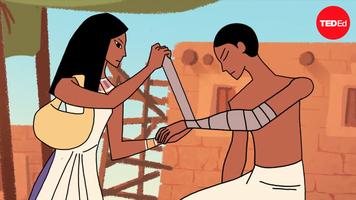
It's another sweltering morning in Memphis, Egypt. As the sunlight brightens the Nile, Peseshet checks her supplies. Honey, garlic, cumin, acacia leaves, cedar oil -- she's well stocked with the essentials she needs to treat her patients. Elizabeth Cox outlines a day in the life of an ancient Egyptian doctor. [TED-Ed Animation by Echo Bridge]
Nick Hanauer: The dirty secret of capitalism -- and a new way forward
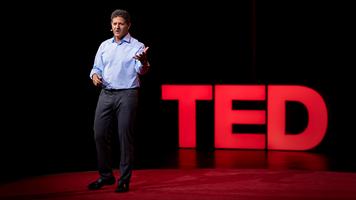
Rising inequality and growing political instability are the direct result of decades of bad economic theory, says entrepreneur Nick Hanauer. In a visionary talk, he dismantles the mantra that "greed is good" -- an idea he describes as not only morally corrosive, but also scientifically wrong -- and lays out a new theory of economics powered by r...
Wawira Njiru: The blueprint for serving a million school lunches — every day
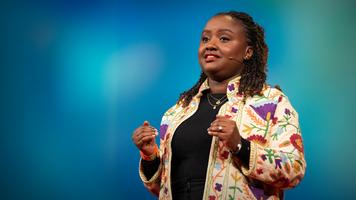
Sometimes feeding just one child can seem challenging. Not for entrepreneur Wawira Njiru, who’s gone from serving lunch to 25 children from a makeshift kitchen to establishing her nonprofit, Food4Education, as a cornerstone of Kenya’s school meals system. Currently serving half a million meals to children every day, she’s now thinking even bigge...
Richard J. Berry: A practical way to help the homeless find work and safety
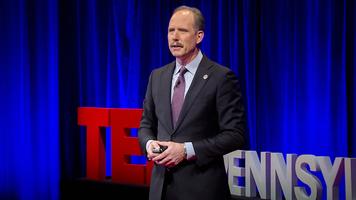
When Richard J. Berry, the mayor of Albuquerque, saw a man on a street corner holding a cardboard sign that read "Want a job," he decided to take him (and others in his situation) up on it. He and his staff started a citywide initiative to help the homeless by giving them day jobs and a place to sleep -- and the results were incredible. Find out...
